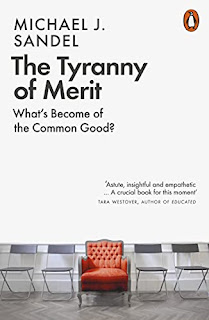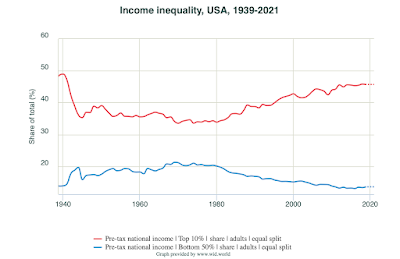By “strong gods,” I do not mean Thor and the other residents of the Old Norse Valhalla. The strong gods are the objects of men’s love and devotion, the sources of the passions and loyalties that unite societies. They can be timeless. Truth is a strong god because it beckons us to the matrimony of assent. They can be traditional. King and country, insofar as they still arouse men’s patriotic ardor, are strong gods. The strong gods can take the forms of modern ideologies and charismatic leaders. The strong gods can be beneficent. Our constitutional piety treats the American Founding as a strong god worthy of our devotion. And they can be destructive. In the twentieth century, militarism, fascism, communism, racism, and anti-Semitism brought ruin… I take it for granted that these strong gods must be resisted. (p. xxiv)Reno’s critique and description of the post-war consensus with its visions of an open society are not too different from the technocratic liberalism that Michael Sandel laments ("The Tyranny of Merit"). And Reno notes that we can find open society intellectuals on both political left and right:
- Karl Popper
- Arthur Schlesinger, Jr.
- Friedrich Hayek
- Milton Friedman
- William Buckley
- Sigmund Freud
- Albert Camus
- Jacques Derrida
The strong god of the nation draws us out of our “little worlds.” Our shared loves—love of our land, our history, our founding myths, our warriors and our heroes—raise us to a higher vantage point. We see our private interest as part of a larger whole, the “we” that calls upon our freedom to serve the body politic with intelligence and loyalty. As Aristotle recognized, this loyalty is intrinsically fulfilling, for it satisfies the human desire for transcendence (p. 155).Thus, instead of embracing the “globalist utopianism” of the open society, we should seek to cultivate the healthiest kind of strong gods while resisting those that lead to “militarism, totalitarian regimes, and vicious racial segregation” (p. 147). Only by attending “to the strong gods who come from above and animate the best of our traditions” will we be able to turn away from “the dark gods that rise up from below” (p. 162).
I think Reno is partially correct. As the political scientist Paul Miller puts it: “we cannot escape some kind of overarching story of who ‘we’ are, a story that gives us meaning, purpose, and direction” (p. 230). To pretend that most people are not attracted to transcendent stories only creates a vacuum that someone or something will fill.
I am reminded of David Foster Wallace’s 2005 commencement address at Kenyon College (not to mention Bob Dylan's 1979 “Gotta Serve Somebody”):
In the day-to-day trenches of adult life, there is actually no such thing as atheism. There is no such thing as not worshipping. Everybody worships. The only choice we get is what to worship. And an outstanding reason for choosing some sort of god or spiritual-type thing to worship—be it J.C. or Allah, be it Yahweh or the Wiccan mother-goddess or the Four Noble Truths or some infrangible set of ethical principles—is that pretty much anything else you worship will eat you alive.
If you worship money and things—if they are where you tap real meaning in life—then you will never have enough. Never feel you have enough. It’s the truth…
Worship your own body and beauty and sexual allure, and you will always feel ugly, and when time and age start showing, you will die a million deaths before they plant you...
Worship power—you will feel weak and afraid, and you will need ever more power over others to keep the fear at bay.
Worship your intellect, being seen as smart—you will end up feeling stupid, a fraud, always on the verge of being found out.
And so on. (pp. 98-111)I'd add religious nationalism to Wallace’s list. If we worship our nation, we’ll be eaten alive. Nationalism is the identity politics of the majority tribe, so there’ll always be minority tribes who hold a different vision for our country. As such, we'll constantly be on our guard and looking for ways to suppress them and their vision while promoting ours (and giving others the power to do both). That doesn't sound like a recipe for fulfilling life, not for those in the majority or in the minority. It also doesn't sound very Christian.
Previous Posts
References
Paul D. Miller. 2022. The Religion of American Greatness: What’s Wrong with Christian Nationalism. Downers Grove, IL: InterVarsity Press.
R. R. Reno. 2021. Return of the Strong Gods: Nationalism, Populism, and the Future of the West. Washington D.C.: Regnery Gateway.
Michael J. Sandel. 2020. The Tyranny of Merit: What’s Become of the Common Good? New York, NY: Farrar, Straus and Giroux.



